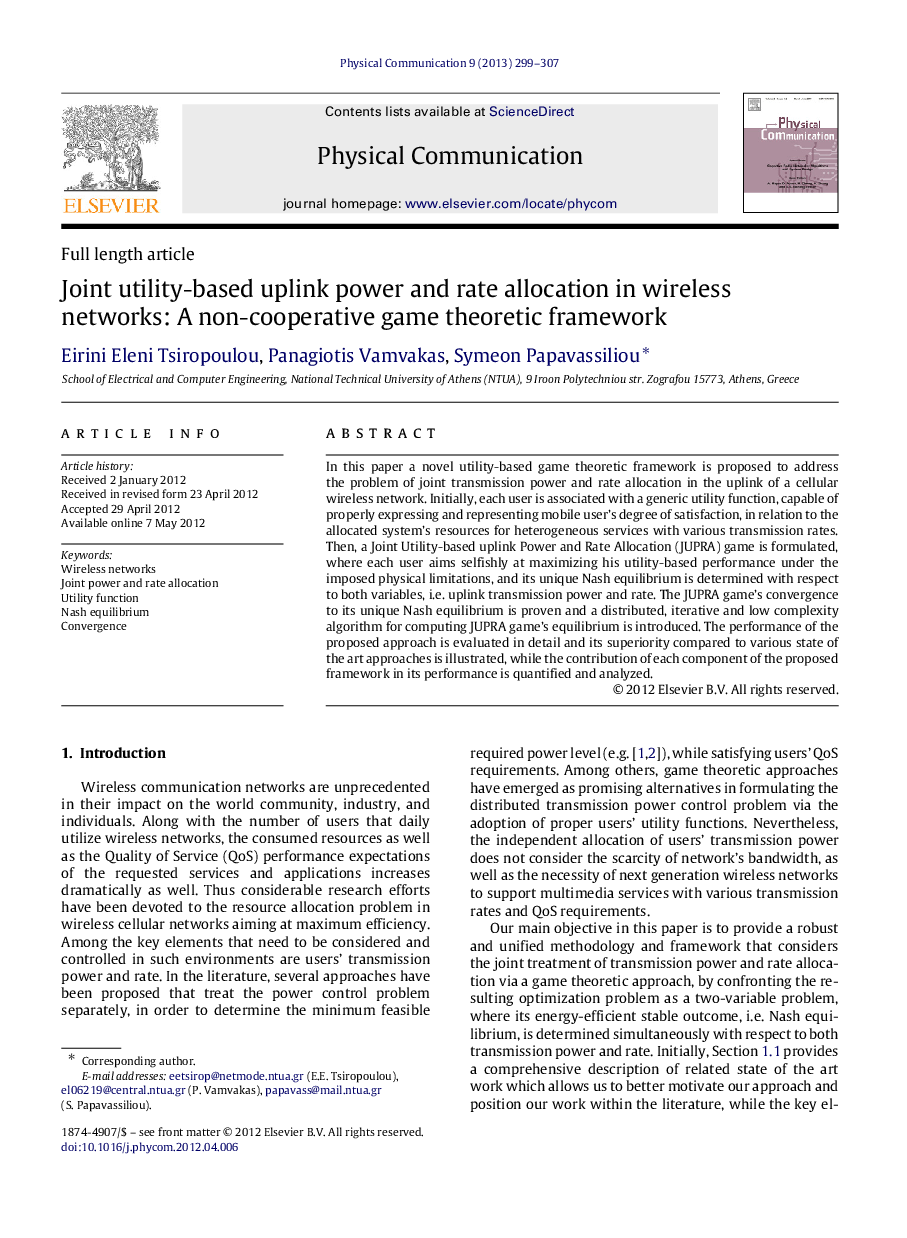| Article ID | Journal | Published Year | Pages | File Type |
|---|---|---|---|---|
| 465835 | Physical Communication | 2013 | 9 Pages |
In this paper a novel utility-based game theoretic framework is proposed to address the problem of joint transmission power and rate allocation in the uplink of a cellular wireless network. Initially, each user is associated with a generic utility function, capable of properly expressing and representing mobile user’s degree of satisfaction, in relation to the allocated system’s resources for heterogeneous services with various transmission rates. Then, a Joint Utility-based uplink Power and Rate Allocation (JUPRA) game is formulated, where each user aims selfishly at maximizing his utility-based performance under the imposed physical limitations, and its unique Nash equilibrium is determined with respect to both variables, i.e. uplink transmission power and rate. The JUPRA game’s convergence to its unique Nash equilibrium is proven and a distributed, iterative and low complexity algorithm for computing JUPRA game’s equilibrium is introduced. The performance of the proposed approach is evaluated in detail and its superiority compared to various state of the art approaches is illustrated, while the contribution of each component of the proposed framework in its performance is quantified and analyzed.
